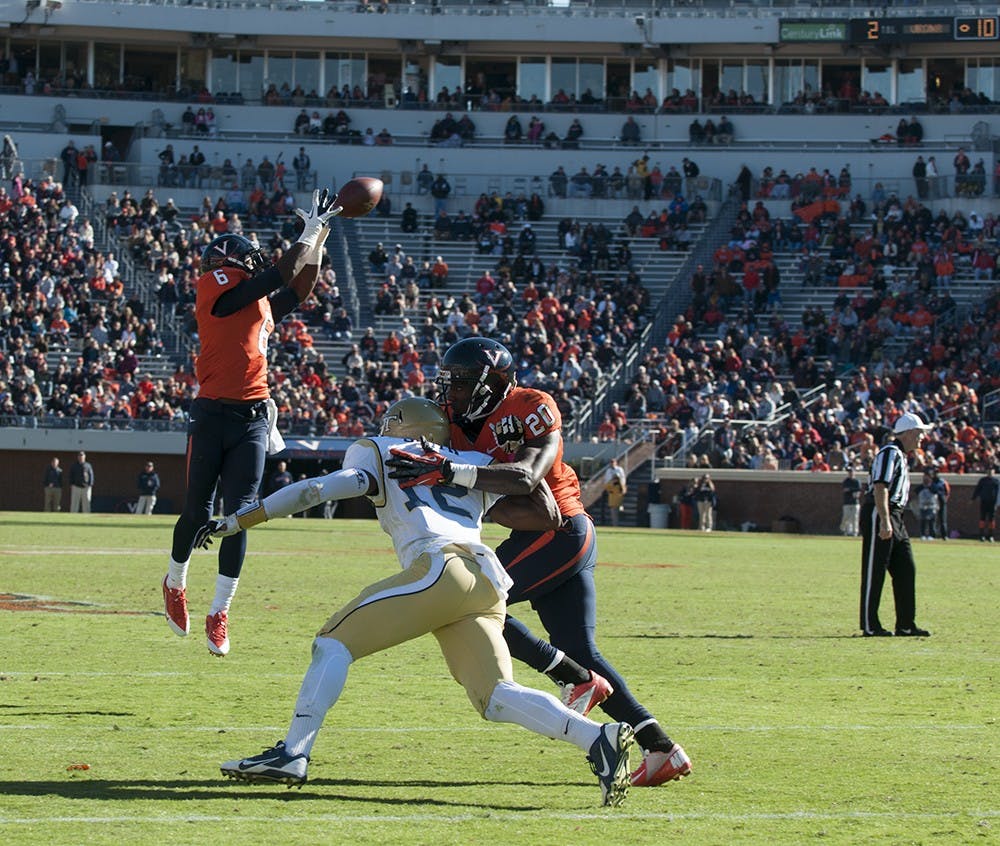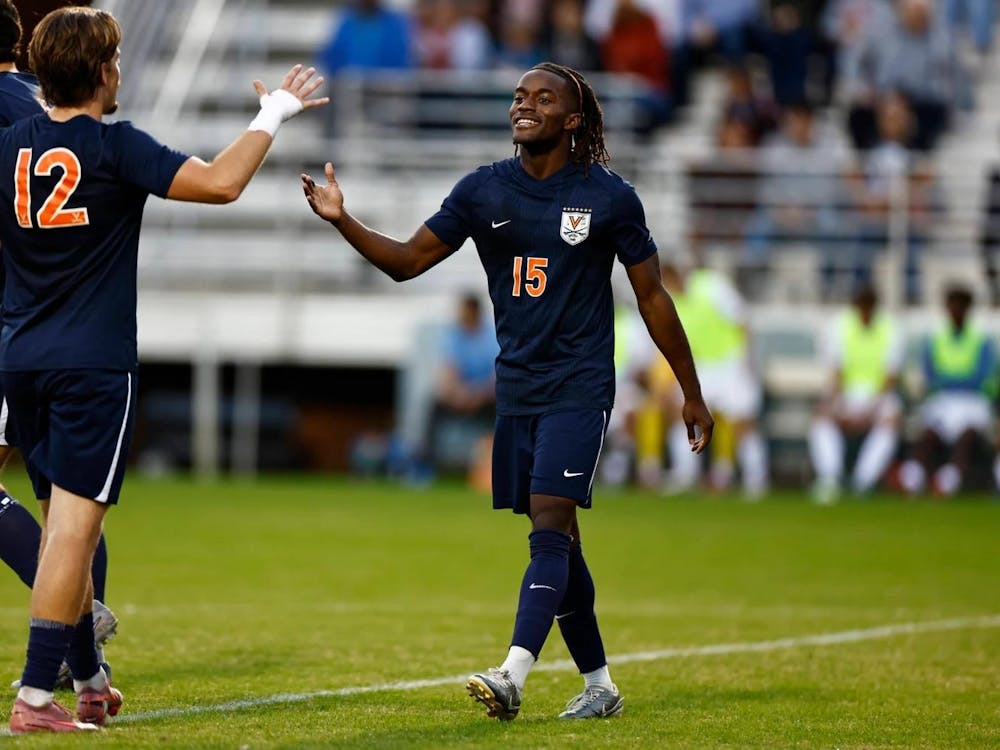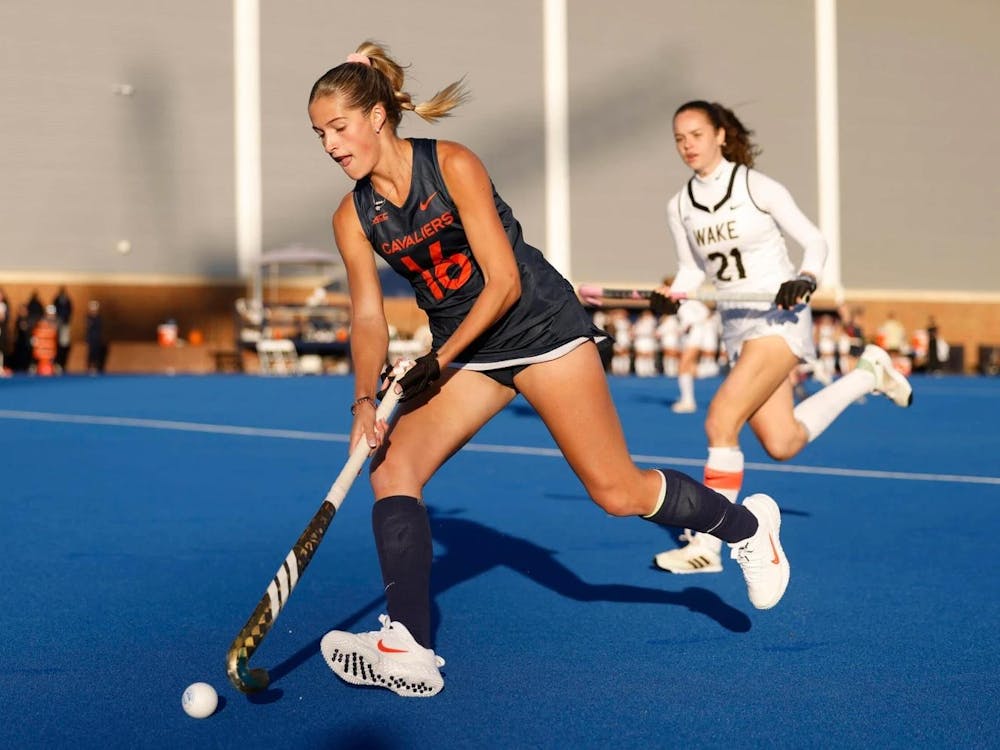The story is played out. Every week Virginia football finds a different way to lose. It happened again Saturday against Georgia Tech, as the Cavaliers fell 35-25 in spite of a plus-4 turnover margin.
So we aren’t going to talk about that this week.
Before the game at Alumni Hall, legendary former Virginia coach George Welsh, the winningest coach in program history, spoke about the game against the Yellow Jackets and what he believes are the root causes of Virginia’s many problems. One of the more interesting things he mentioned was how his teams had a rule on offense: going deep at least once per quarter.
I’m not sure if coach Mike London and offensive coordinator Steve Fairchild were also at Welsh’s talk before the game, but if so, they seemed to take his message to heart.
Fairchild showed little hesitation in letting David Watford air the ball out against Georgia Tech. Watford attempted 61 passes and completed 43 of them, shattering Matt Schaub’s school records in each category.
“Some of it was just a function of playing from behind,” Watford said. “We needed points, we had to score, so whatever coach was calling I was going to do it. I didn’t realize I threw so many passes, I was just going with the flow.”
So what? Watford is on track to become the next laughingstock quarterback of the Texans? Damned to throw pick sixes for all eternity? Possibly, but I digress.
The Cavaliers tested Georgia Tech deep early and often. They may not have hit on all or even most of their attempts, but the important part was that they were trying, right?
It led to a career day for Watford’s wideouts. Darius Jennings and Tim Smith — both former starters relegated to second string roles — combined to become the first Cavalier receiver tandem to catch 10 or more passes in the same game, with 13 and 10, respectively.
Jennings, who hadn’t scored a touchdown since the season-opener against BYU, hauled in a pair of scores and 119 yards, while Smith finished with a career-best 151 yards.
“I had some success here early in my career — I played as a freshman, I led the team in yards last year,” Jennings said. “Just for me, to be put in that position, it forced me to go back to my roots — go back to working hard. And I haven’t been able to showcase that out on the field the past few weeks. But just for me to get that chance… it was definitely a great feeling.”
Watford also benefited from his receivers’ hard work in practice this week. Despite being late on throws and missing open receivers multiple times, Watford finished with 376 yards, two touchdowns and an interception. His gaudy stats were largely due to his receivers’ ability to get open consistently, which had been absent for most of the season.
“They had a hell of a week in practice,” Watford said. “I saw it coming from last Sunday, coach Hagans talked to them in a group and told them, ‘This week coming up, there are going to be some changes.’ And from the beginning of practice Tuesday to the end of practice Thursday I saw it coming. They were running 100 miles per hour, catching everything — no drops — very focused, very sharp. We knew it was going to happen, it was just a matter of time before they showed it.”
But Welsh’s point was largely that the Cavaliers should run the ball more. His point about testing defenses deep each quarter was to spread defenses out and keep them honest, preventing them from stacking the box against the run. For a team largely reliant on its running game — particularly Kevin Parks, who has scored nine rushing touchdowns of the offense’s 21 total touchdowns — Saturday’s play distribution was nothing short of bizarre.
The Cavalier offense ran 93 plays, yet rushed on just 31 of those. Before Saturday, Virginia ran the ball five times more than it passed on average per game. The biggest differentials in each direction came against VMI, when the offense ran the ball 33 times more than it passed, and Oregon, when it passed the ball eight more times than it ran — largely due to falling behind early in the game.
It seemed strange that in the span of one week the offensive philosophy would shift from a balanced, power rushing attack to the pass-happy offense we saw against the Ramblin’ Wreck. But I don’t expect that trend to continue, at least in such a pronounced manner. The coaching staff was aiming to use the pass to open up the run, as Welsh suggested, but stuck with what was working — working used loosely in this case, as the offense failed to capitalize on any of the five Georgia Tech turnovers.
“We thought that you could still run the ball effectively if you spread them out,” London said. “As the game went on obviously the thing that became positive for us was the ability to spread the ball by throwing it, and that became and adopted the game plan.”
So it was a frustrating loss, but we’re beyond that at this point in the season. It was encouraging to see progress from the receivers, which will hopefully persist and lighten Watford’s load as a first year starter. In today’s college football game it is vital to have a potent aerial attack, and not one that depends solely on tight ends and running backs as Virginia’s did up until Saturday.







